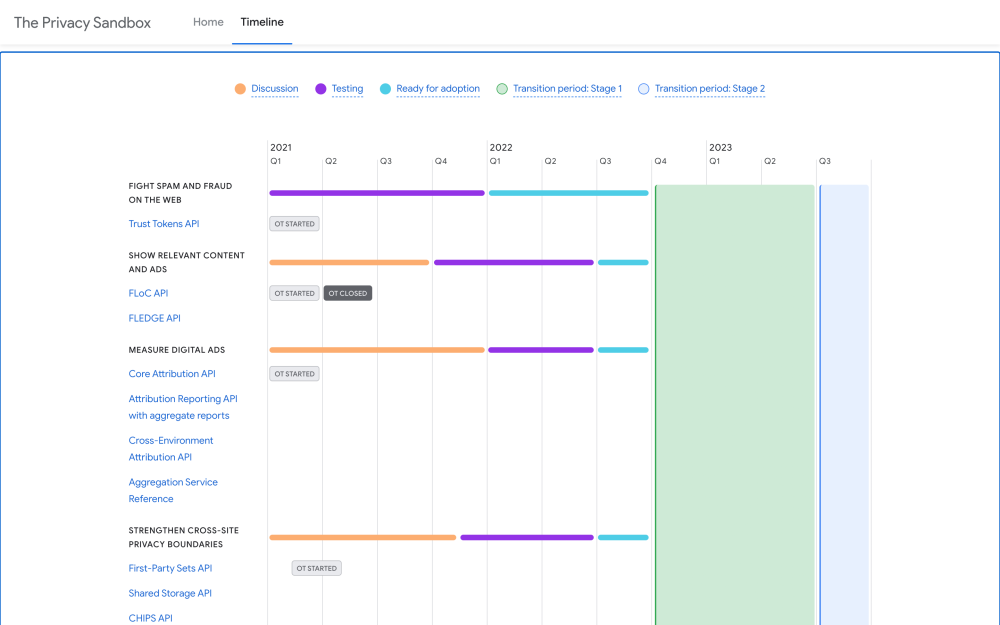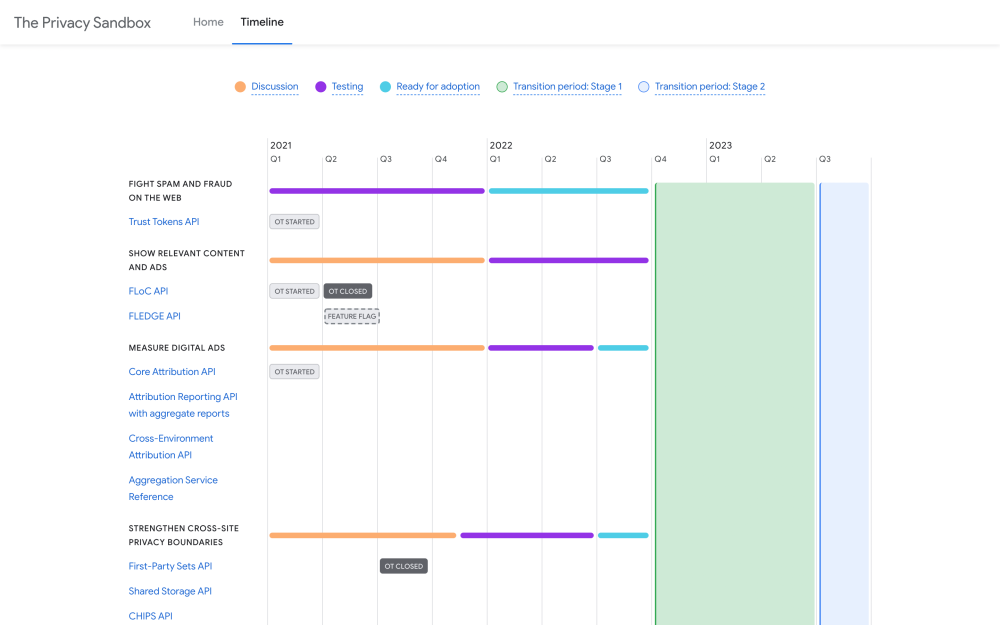
Earlier this year, Google said it would delay its plan to replace third-party cookies and started offering a detailed schedule. The Privacy Sandbox timeline is seeing its monthly update today, and Chrome will not begin testing FLoC and other ad/relevant content technology until Q1 of next year.
Google first released the Privacy Sandbox timeline in July. For September, Google is slightly delaying when technologies for “Show[ing] Relevant Content and Ads” will start “Testing” — defined as when: “All technologies for the use case are available for developers to test and may be refined based on results.”
The two APIs under that are the group-based Federated Learning of Cohorts (FLoC) and FLEDGE, which allows for remarketing without third parties being able to track user browsing across sites. Testing was originally set to start in Q4 2021, but there’s now another three months of discussion. Google has yet to signal whether Stage 1 and 2 will be impacted by these specific changes.
Chrome today offers Privacy Sandbox settings (chrome://settings/privacySandbox) and ran more-limited FLoC original trials for developers until Chrome 91.
-

August 2021 -

September 2021
Meanwhile, scaled (wider) availability of User-Agent Reduction is now set to begin in Q2 of next year instead of the second half of 2022. Moved up, this privacy measure reduces the “passive fingerprinting surfaces” of your browser to brand/major version, mobile or desktop distinction, and platform. That rollout will be completed by Chrome 113 (stable in Q2 2023).
In a statement, Google explains how:
With this month’s privacysandbox.com schedule update we are slightly adjusting the timelines for a few proposals, including FLoC and Fledge.We received substantial feedback from the web community during the initial origin trial for FLoC, and our teams are working on changes to the proposal that best improves people’s privacy without incentivizing people to shift to worse alternatives like fingerprinting.
More detailed changes are available here.
More about Chrome:
- Lens coming to Chrome and will soon be integrated into the Google app browser on iOS
- Google hosting virtual Android Dev Summit 2021 next month, Chrome event in November
- New Tab Page adding Google Drive card with file suggestions
- Chrome 94 introduces Material You and Dynamic Color on Android 12
Author: Abner Li
Source: 9TO5Google



